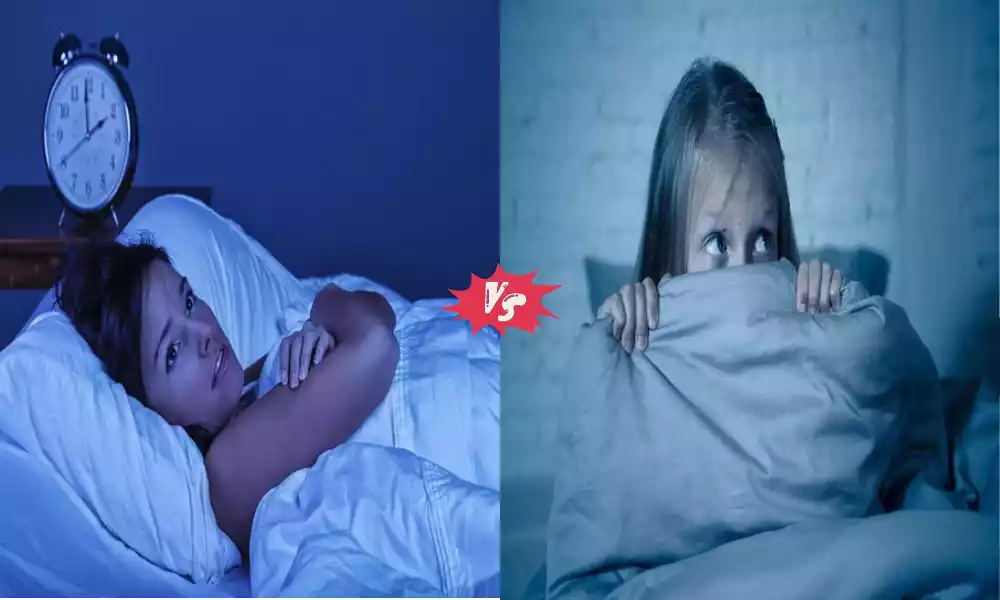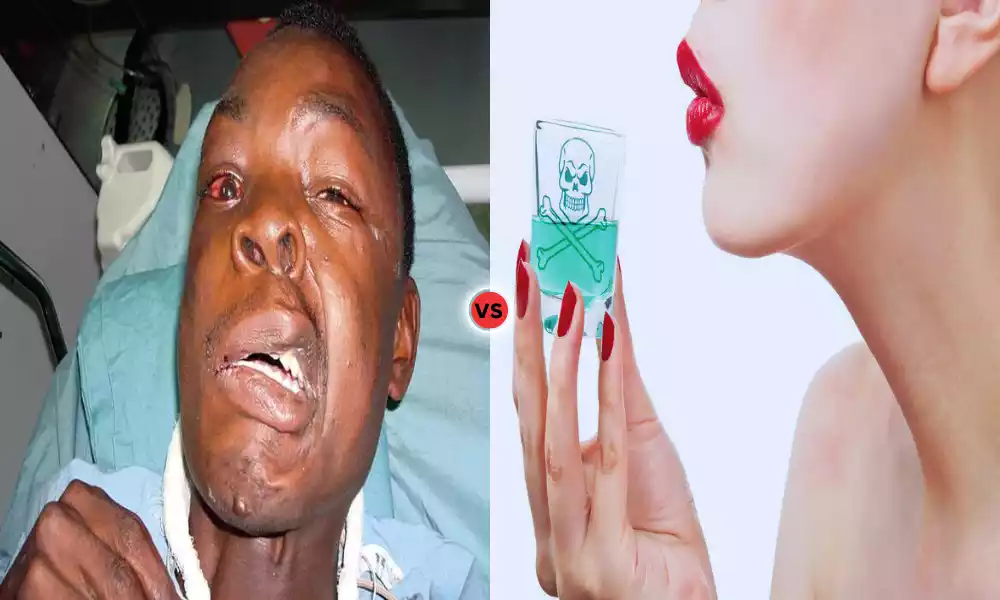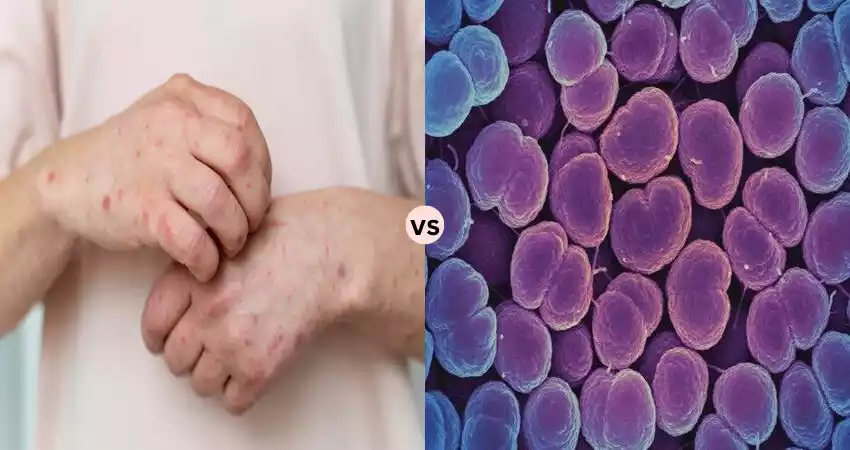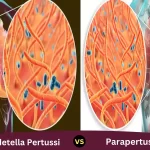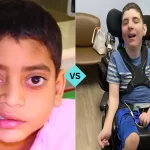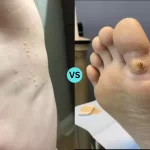Insomnia and Parasomnia are two distinct categories of sleep disorders that can significantly disrupt a person’s sleep patterns and overall well-being. Insomnia is characterized by difficulties in falling asleep, staying asleep, or waking up too early, often resulting in daytime fatigue and impaired cognitive function. In contrast, parasomnia encompasses a range of abnormal behaviors or experiences during sleep, such as sleepwalking, night terrors, or even talking while asleep. Understanding the differences between these two sleep disorders is crucial for accurate diagnosis and effective treatment, as they have distinct causes, symptoms, and management approaches.
What is Insomnia?

Insomnia is a common sleep disorder characterized by difficulties in initiating or maintaining sleep, or experiencing non-restorative sleep despite having the opportunity to sleep. Individuals with insomnia often struggle to fall asleep when they want to, wake up frequently during the night, and may have trouble going back to sleep. As a result, they often experience daytime symptoms such as fatigue, irritability, difficulty concentrating, and decreased overall quality of life.
Insomnia can be a short-term (acute) or long-term (chronic) condition and may be caused by various factors, including stress, medical conditions, medications, lifestyle habits, or psychological issues. Effective treatment for insomnia typically involves addressing its underlying causes and adopting healthy sleep hygiene practices. This may include cognitive-behavioral therapy, medication, or a combination of approaches, depending on the severity and duration of the condition.
Types of Insomnia
Insomnia can be categorized into several types based on its causes, duration, and specific characteristics. The main types of insomnia include:
-
- Acute Insomnia: This is short-term insomnia that typically lasts for a few nights or up to a few weeks. It often occurs in response to specific stressors, such as a major life event, illness, or travel across time zones.
- Chronic Insomnia: Chronic insomnia is characterized by persistent sleep difficulties that occur at least three nights a week and last for three months or more. It can be caused by a variety of factors, including medical conditions, psychological issues, or lifestyle factors.
- Onset Insomnia: Onset insomnia refers to difficulties in falling asleep at the beginning of the night. People with this type of insomnia may lie in bed for an extended period before they are able to fall asleep.
- Maintenance Insomnia: Maintenance insomnia involves waking up during the night and having difficulty returning to sleep. Individuals with this type of insomnia may awaken multiple times throughout the night.
- Comorbid Insomnia: Comorbid insomnia occurs alongside other medical or psychological conditions. For example, insomnia is often seen in conjunction with anxiety, depression, chronic pain, or other health issues.
- Primary Insomnia: Primary insomnia is not associated with any other medical or psychological condition. It is a standalone sleep disorder with no clear underlying cause.
- Secondary Insomnia: Secondary insomnia is the result of another medical or psychological issue. It can be caused by conditions like depression, anxiety disorders, sleep apnea, or chronic pain.
- Idiopathic Insomnia: Idiopathic insomnia is a rare form of chronic insomnia that typically begins in childhood and persists throughout a person’s life. Its cause is not well understood.
- Psychophysiological Insomnia: This type of insomnia often develops due to heightened anxiety or worry about sleep itself. Individuals become overly focused on their sleep problems, which can perpetuate the issue.
- Paradoxical Insomnia (Sleep State Misperception): Paradoxical insomnia occurs when individuals believe they have severe sleep disturbances, but objective measures, such as polysomnography, show that their sleep patterns are normal.
- Behavioral Insomnia of Childhood: This type of insomnia primarily affects children and is related to behavioral issues around bedtime, such as resistance to going to bed, bedtime anxiety, or refusal to sleep alone.
Understanding the specific type of insomnia a person is experiencing is important for tailoring treatment strategies to address the underlying causes and symptoms effectively. Treatment options may include cognitive-behavioral therapy for insomnia (CBT-I), medication, lifestyle changes, and addressing any contributing factors such as stress or medical conditions.
Causes of Insomnia
Insomnia can be caused by a variety of factors, and its origins may differ from one individual to another. The causes of insomnia can be broadly categorized into the following:
- Psychological Factors:
- Stress: High levels of stress, such as work-related stress, financial worries, or relationship problems, can lead to acute or chronic insomnia.
- Anxiety: Generalized anxiety disorder, panic disorder, or specific phobias can interfere with sleep and contribute to insomnia.
- Depression: Individuals with depression often experience changes in their sleep patterns, including difficulty falling asleep, waking up too early, or sleeping excessively.
- Trauma: Past traumatic experiences, such as post-traumatic stress disorder (PTSD), can disrupt sleep.
- Medical Conditions:
- Chronic Pain: Conditions like arthritis, fibromyalgia, or chronic back pain can cause discomfort that makes it difficult to sleep.
- Neurological Disorders: Conditions like Parkinson’s disease, Alzheimer’s disease, and restless legs syndrome can disrupt sleep.
- Respiratory Disorders: Sleep apnea and chronic obstructive pulmonary disease (COPD) can lead to disrupted sleep patterns.
- Gastrointestinal Disorders: Acid reflux (GERD) and irritable bowel syndrome (IBS) can cause discomfort at night.
- Hormonal Changes: Hormonal fluctuations, such as those experienced during menopause, can lead to insomnia.
- Medications and Substances:
- Stimulants: The use of caffeine, nicotine, or certain medications (e.g., some antidepressants or ADHD medications) can interfere with sleep.
- Alcohol: While alcohol may initially induce sleep, it can disrupt the sleep cycle and lead to fragmented or poor-quality sleep.
- Prescription Medications: Some medications, such as those for high blood pressure, asthma, or allergies, may have insomnia as a side effect.
- Lifestyle and Environmental Factors:
- Irregular Sleep Schedule: Inconsistent bedtime and wake-up times can disrupt the body’s natural sleep-wake cycle.
- Poor Sleep Environment: Factors like excessive noise, uncomfortable bedding, or a too-warm or too-cold room can hinder sleep.
- Shift Work: People who work irregular or night shifts often experience insomnia due to disrupted circadian rhythms.
- Technology Use: Excessive screen time before bedtime, such as using smartphones or computers, can interfere with sleep due to the blue light emitted.
- Psychiatric Disorders:
- Bipolar Disorder: People with bipolar disorder may experience changes in sleep patterns during manic or depressive episodes.
- Schizophrenia: This condition can lead to altered sleep patterns and difficulties in maintaining a regular sleep schedule.
- Aging: As individuals age, changes in sleep architecture and health conditions can increase the likelihood of insomnia.
- Genetics: Some individuals may have a genetic predisposition to insomnia, making them more susceptible to sleep disturbances.
Identifying and addressing the underlying cause of insomnia is crucial for effective treatment. Treatment options may include lifestyle modifications, cognitive-behavioral therapy for insomnia (CBT-I), medication (when necessary and under the guidance of a healthcare professional), and addressing any coexisting conditions or contributing factors. It’s important to consult with a healthcare provider if insomnia persists or significantly impacts your daily life.
Effects of Insomnia on Health
Sleep disorders have a detrimental impact on an individual’s physical and mental wellbeing as well as their quality of life. The effects of insomnia on health can be far-reaching and may include:
- Daytime Fatigue: Insomnia often leads to persistent daytime fatigue, which can impair concentration, alertness, and cognitive function. This can increase the risk of accidents, decreased productivity, and difficulty performing daily tasks.
- Mood Disturbances: Chronic insomnia is closely linked to mood disorders, such as depression and anxiety. Sleep disturbances can exacerbate existing mental health conditions or trigger new ones.
- Irritability and Emotional Instability: Lack of sleep can make individuals more irritable, emotionally sensitive, and prone to mood swings. It can strain relationships and affect interpersonal interactions.
- Impaired Memory and Cognitive Function: Insomnia can impair memory consolidation, problem-solving abilities, and overall cognitive function. Learning new information and making decisions may become more challenging.
- Weakened Immune System: Chronic sleep deprivation can weaken the immune system, making individuals more susceptible to illnesses like the common cold and flu. It can also affect the body’s ability to recover from illness or injury.
- Increased Risk of Chronic Diseases: Insomnia has been associated with an increased risk of several chronic health conditions, including heart disease, hypertension, diabetes, and obesity.
- Pain Perception: Sleep deprivation can lower the pain threshold, making individuals more sensitive to pain and discomfort. This can worsen chronic pain conditions.
- Hormonal Imbalances: Sleep plays a crucial role in regulating hormones that control appetite, stress response, and metabolism. Insomnia can disrupt these hormonal systems, potentially leading to weight gain and increased stress.
- Gastrointestinal Issues: Chronic insomnia has been linked to gastrointestinal problems like irritable bowel syndrome (IBS) and gastroesophageal reflux disease (GERD).
- Impaired Physical Performance: Athletes and individuals engaged in physically demanding activities may experience reduced physical performance due to sleep deprivation.
- Cardiovascular Health: Insomnia is associated with an increased risk of high blood pressure and cardiovascular events, such as heart attacks and strokes.
- Reduced Quality of Life: Overall, insomnia can significantly reduce an individual’s quality of life. It can lead to social isolation, decreased enjoyment of daily activities, and a general sense of dissatisfaction.
The effects of insomnia can vary in severity and duration. Acute or short-term insomnia may have fewer and less severe consequences than chronic insomnia, which persists for three or more months. Effective treatment of insomnia is essential to mitigate these health effects and improve overall well-being.
Treatment options may include lifestyle changes, cognitive-behavioral therapy for insomnia (CBT-I), medications (when appropriate and under medical supervision), and addressing underlying causes or contributing factors. Consulting with a healthcare provider or sleep specialist is recommended for individuals experiencing persistent insomnia.
How to Manage Insomnia
To manage insomnia, consider these short tips:
-
- Establish a Consistent Sleep Schedule: Keep a consistent bedtime and wake-up time, even on weekends.
- Create a Relaxing Bedtime Routine: Wind down before sleep with calming activities like reading, gentle stretching, or meditation.
- Limit Exposure to Screens: Avoid screens (phones, tablets, computers, TVs) before bedtime, as the blue light can disrupt sleep.
- Ensure a Comfortable Sleep Environment: Be sure that your bedroom is dark, peaceful, and at a moderate temperature.
- Watch Your Diet: Avoid heavy meals, caffeine, and alcohol close to bedtime.
- Exercise Regularly: Engage in physical activity, but avoid vigorous exercise too close to bedtime.
- Manage Stress: Practice stress-reduction techniques, such as deep breathing or progressive muscle relaxation.
- Limit Naps: If you nap during the day, keep them short (20-30 minutes) and not too close to bedtime.
- Limit Clock Watching: Resist the urge to check the time if you wake up during the night.
- Seek Professional Help: If insomnia persists, consult a healthcare provider or sleep specialist for further evaluation and treatment, which may include cognitive-behavioral therapy for insomnia (CBT-I) or medication.
Remember that consistent lifestyle changes and good sleep hygiene practices are key to managing insomnia effectively.
What is Parasomnia?
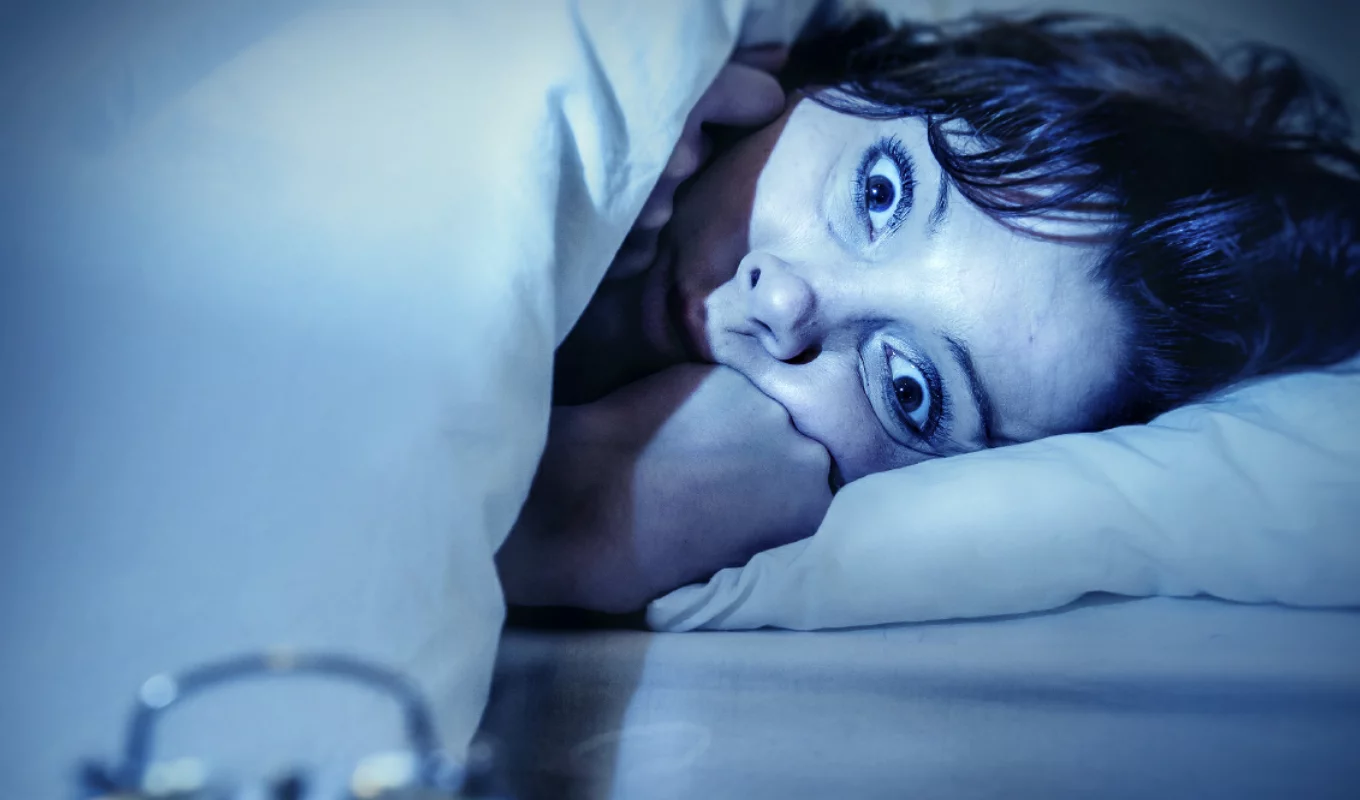
Parasomnia is a term used to describe a group of sleep disorders characterized by abnormal behaviors, experiences, or physiological events that occur during sleep or are closely associated with sleep transitions. These disturbances can vary in intensity and nature, ranging from relatively harmless and benign actions to more complex and potentially disruptive behaviors.
Parasomnia episodes typically take place during specific stages of sleep, such as rapid eye movement (REM) or non-rapid eye movement (NREM) sleep, and they can affect individuals of all ages.
Common examples of parasomnias include sleepwalking, night terrors, nightmares, REM sleep behavior disorder (RBD), sleep talking, sleep-related eating disorder (SRED), sleep paralysis, and exploding head syndrome. These episodes often leave individuals confused, disoriented, or with no memory of the events upon awakening. Understanding and diagnosing parasomnia are essential for providing appropriate treatment and interventions, as these sleep disorders can have a significant impact on an individual’s quality of life and safety.
Treatment may involve lifestyle modifications, stress management, and in some cases, medical or behavioral therapies to reduce the occurrence and severity of parasomnia episodes. Consulting with a healthcare provider or sleep specialist is crucial for those experiencing parasomnia to address their specific needs and improve sleep-related issues.
Common Parasomnias
Common parasomnias include a range of sleep disorders characterized by abnormal behaviors, experiences, or physiological events that occur during sleep or sleep transitions. Some of the most common parasomnias include:
-
- Sleepwalking (Somnambulism): Sleepwalkers engage in various activities while asleep, such as walking, sitting up, or even performing complex tasks like cooking. They are usually unaware of their actions and may have no memory of the episode upon awakening.
- Night Terrors (Sleep Terrors): Night terrors are episodes of intense fear, screaming, or thrashing during sleep, often accompanied by rapid heart rate and physiological arousal. Individuals experiencing night terrors are typically confused and disoriented upon awakening.
- Nightmares: Nightmares are vivid, distressing dreams that evoke strong negative emotions, often causing the person to wake up suddenly. Unlike night terrors, individuals usually remember the content of nightmares.
- REM Sleep Behavior Disorder (RBD): RBD involves acting out dreams during REM (rapid eye movement) sleep. This can lead to physically active behaviors, such as shouting, punching, or kicking, during sleep. Unlike typical REM sleep, where muscle activity is inhibited, individuals with RBD physically enact their dreams.
- Sleep Talking (Somniloquy): Sleep talking involves speaking during sleep. The content of speech can range from gibberish to coherent conversations. Sleep talkers are typically unaware of their talking and may not remember it upon awakening.
- Sleep-Related Eating Disorder (SRED): Patients living with SRED often exhibit drinking and eating behaviors while sleeping, which disrupts the restful state. They may consume large quantities of food without awareness, leading to weight gain and potential health issues.
- Sleep Paralysis: Sleep paralysis is a brief inability to move or speak when falling asleep or waking up. It is often accompanied by vivid hallucinations and can be distressing.
- Exploding Head Syndrome (EHS): EHS is characterized by the perception of loud noises, such as explosions or crashes, when falling asleep or waking up. These noises are entirely subjective and not real sounds.
These parasomnias can occur in people of all ages, but they often present unique challenges and may be more prevalent in children and adolescents. The exact causes of parasomnias can vary depending on the specific type and individual factors, such as genetics, stress, or sleep-related issues.
Treatment options for parasomnias typically involve improving sleep hygiene, managing stress, and addressing any underlying sleep disorders or medical conditions. In some cases, medications or behavioral therapy may be recommended to manage and reduce the frequency of parasomnia episodes. Consulting with a healthcare provider or sleep specialist is essential for accurate diagnosis and appropriate treatment.
Causes of Parasomnia
The causes of parasomnia are multifactorial and can vary depending on the specific type of parasomnia. While the exact origins of each parasomnia may differ, some common factors and triggers include:
- Genetics: There may be a genetic predisposition to certain parasomnias. Individuals with a family history of parasomnias may be at a higher risk.
- Stress and Anxiety: Emotional stress, anxiety, or major life changes can trigger or exacerbate some parasomnias. Stress may lead to heightened arousal during sleep, increasing the likelihood of parasomnia episodes.
- Sleep Deprivation: Insufficient or disrupted sleep patterns can increase the occurrence of parasomnias. This is often seen in shift workers or those with irregular sleep schedules.
- Underlying Sleep Disorders: Conditions such as sleep apnea, restless legs syndrome (RLS), or narcolepsy can contribute to parasomnia episodes. Disordered sleep architecture can disrupt the normal sleep cycle and trigger abnormal behaviors during sleep.
- Medications and Substances: Some medications, particularly those that affect the central nervous system, may increase the risk of parasomnias. Additionally, the use of alcohol, sedatives, or certain drugs can influence sleep and contribute to parasomnia episodes.
- Fever and Illness: High fever or illness, especially in children, can trigger night terrors or other parasomnias.
- Psychiatric Conditions: Certain psychiatric disorders, such as post-traumatic stress disorder (PTSD) and bipolar disorder, may be associated with parasomnias.
- Neurological Disorders: Conditions like epilepsy and other neurological disorders can disrupt sleep and lead to parasomnia episodes.
- Sleep Disruptors: Environmental factors such as noise, light, or an uncomfortable sleep environment can disrupt sleep and contribute to parasomnias.
- Hormonal Changes: Hormonal fluctuations, such as those during pregnancy or menopause, can affect sleep patterns and contribute to parasomnias in some individuals.
- Childhood Development: Some parasomnias, such as night terrors or sleepwalking, are more common in children and tend to decrease with age as the central nervous system matures.
- Inherited Factors: Parasomnias may have a familial component, suggesting a genetic influence.
The specific causes of different parasomnias can vary significantly. Accurate diagnosis and identification of contributing factors are essential for determining the appropriate treatment approach. Treatment strategies may include addressing underlying medical or psychiatric conditions, improving sleep hygiene, managing stress, and sometimes using medications or behavioral therapies to reduce the frequency and severity of parasomnia episodes.
Consulting with a healthcare provider or sleep specialist is crucial for individuals experiencing parasomnias to receive proper evaluation and guidance for management and treatment.
Effects of Parasomnia on Health
Parasomnias can have a range of effects on an individual’s health and overall well-being. The specific impact of parasomnia on health can vary depending on the type and severity of the parasomnia, but common effects may include:
- Sleep Disruption: Parasomnias can lead to frequent awakenings or disrupted sleep patterns, which can result in chronic sleep deprivation. Consistently interrupted sleep can contribute to daytime fatigue, reduced alertness, and impaired cognitive function.
- Daytime Dysfunction: The disruption of normal sleep architecture caused by parasomnias can lead to significant daytime dysfunction. Individuals may experience difficulties concentrating, memory problems, and reduced performance at work or school.
- Increased Risk of Accidents: Some parasomnias, such as sleepwalking or REM sleep behavior disorder, can involve physical activity during sleep. This increases the risk of accidents and injuries, both to the individual and to others sharing the sleep environment.
- Psychological Impact: Parasomnias can be emotionally distressing for the individual experiencing them and for family members or bed partners who witness these episodes. This emotional distress can contribute to anxiety, stress, and reduced quality of life.
- Impact on Relationships: Parasomnias may disrupt sleep for bed partners or family members, potentially leading to strained relationships or sleep disturbances in others.
- Mood Disorders: Chronic parasomnias can lead to mood disturbances, including irritability, anxiety, and even depression. These emotional effects may be linked to the distress caused by recurrent parasomnia episodes.
- Injury and Physical Harm: Some parasomnias, such as night terrors or REM sleep behavior disorder, can result in individuals acting out their dreams or experiencing intense emotions during episodes. This can lead to self-inflicted injuries or unintentional harm to others.
- Increased Stress: Dealing with parasomnias can be emotionally taxing. Fear or anxiety about the next episode can contribute to increased stress levels.
- Impaired Physical Health: Chronic sleep disruption associated with parasomnias can contribute to a range of physical health problems, including cardiovascular issues, obesity, and weakened immune function.
- Impaired Functioning: Individuals with severe parasomnias may experience impaired daily functioning, including difficulties maintaining employment or engaging in social activities.
It’s important to recognize that the effects of parasomnia on health can vary from person to person, and some individuals may experience only mild or infrequent episodes with minimal impact.
For those with chronic or severe parasomnias, seeking evaluation and treatment from a healthcare provider or sleep specialist is essential. Treatment approaches may include improving sleep hygiene, addressing underlying medical or psychological factors, and, in some cases, the use of medications or behavioral therapies to manage or reduce parasomnia episodes.
Treatment for Parasomnia
Treatment for parasomnia often involves:
-
- Safety Measures: Ensure a safe sleep environment to prevent injuries during episodes.
- Sleep Hygiene: Make a schedule for sleep and time for bed.
- Behavioral Interventions: Consider Cognitive-Behavioral Therapy for Parasomnias (CBT-P) for targeted therapy.
- Medications: In some cases, medication may be prescribed to manage specific parasomnias, under medical supervision.
- Stress Management: Address stress or anxiety, which can trigger or worsen parasomnia.
- Treatment of Underlying Conditions: Manage any medical or psychiatric conditions contributing to parasomnia.
- Sleep Studies: If needed, undergo sleep studies to monitor and evaluate sleep patterns.
Consult with a healthcare provider or sleep specialist for personalized treatment based on your specific parasomnia type and symptoms.
Comparison Table of Insomnia and Parasomnia
Below is a comparison table highlighting the key differences between insomnia and parasomnia:
| Aspect | Insomnia | Parasomnia |
|---|---|---|
| Definition | Difficulty falling asleep, staying asleep, or early awakening | Abnormal behaviors, experiences, or physiological events during sleep or sleep transitions |
| Timing of Occurrence | Primarily during bedtime or night | During specific sleep stages (e.g., REM or NREM) or sleep transitions |
| Causes | Stress, medical conditions, medications, lifestyle factors | Genetics, stress, medications, substances, underlying medical or psychiatric conditions |
| Common Symptoms | Daytime fatigue, irritability, impaired cognitive function | Confusion upon waking, disorientation, amnesia regarding episodes |
| Diagnosis | Sleep history, sleep diary, sleep studies | Sleep history, video monitoring, polysomnography |
| Treatment | Sleep hygiene, cognitive-behavioral therapy (CBT-I), medication | Safety measures, behavioral interventions, medications (in some cases) |
| Associated Risks | Impact on mental health, increased risk of chronic diseases | Risk of injuries, potential harm to self or others, emotional distress |
| Common Types | Acute, chronic, onset, maintenance, comorbid | Sleepwalking, night terrors, nightmares, REM sleep behavior disorder, sleep talking, sleep-related eating disorder, sleep paralysis, exploding head syndrome |
| Sleep Architecture | Disruptions in sleep initiation or maintenance | Disruptions in sleep stages and behaviors during sleep |
Preventing Sleep Disorders
To prevent sleep disorders:
- Prioritize Sleep: Maintain a regular sleep schedule and aim for 7-9 hours of quality sleep each night.
- Create a Comfortable Sleep Environment: Ensure a dark, quiet, and cool bedroom with a comfortable mattress and bedding.
- Limit Stimulants: Stay away from nicotine, caffeine and alcohol before the time for bed.
- Manage Stress: Relaxation techniques such as deep breathing and meditation may help reduce anxiety and reduce stress levels.
- Exercise Regularly: Engage in regular physical exercise, but avoid intense workouts right before bedtime.
- Limit Screen Time: Avoid screens before bedtime to minimize the disruptive effects of blue light.
- Watch Your Diet: Avoid heavy meals and large quantities of fluids close to bedtime.
- Seek Treatment Early: Address any symptoms of sleep disorders promptly by consulting a healthcare provider.
- Practice Good Sleep Hygiene: Develop healthy sleep habits and routines to promote restorative sleep.
- Stay Informed: Educate yourself about sleep disorders and their risk factors, especially if you have a family history or other predisposing factors.
Implementing these preventive measures can help maintain healthy sleep patterns and reduce the risk of developing sleep disorders.
Summary
Insomnia and Parasomnia are distinct sleep disorders that can disrupt an individual’s sleep patterns and overall well-being. Insomnia involves difficulties in falling asleep, staying asleep, or waking up too early, leading to daytime fatigue and mood disturbances. Parasomnia encompasses a range of abnormal behaviors or experiences during sleep, such as sleepwalking and night terrors.
Both conditions can have a significant impact on physical and mental health. Effective management and treatment, including lifestyle adjustments, therapy, and, in some cases, medication, are essential for improving sleep quality and overall quality of life.

